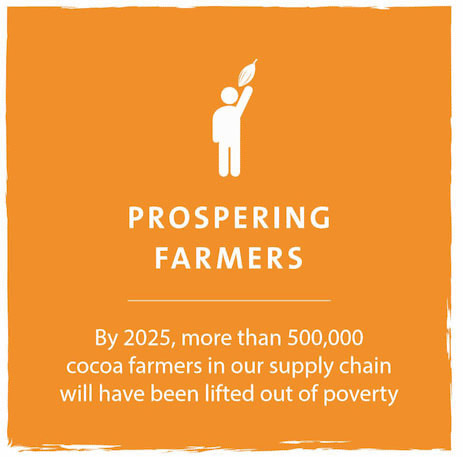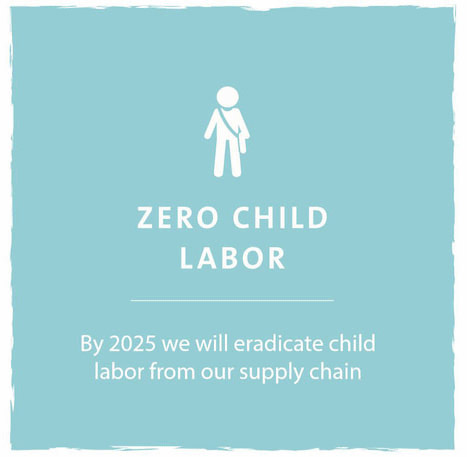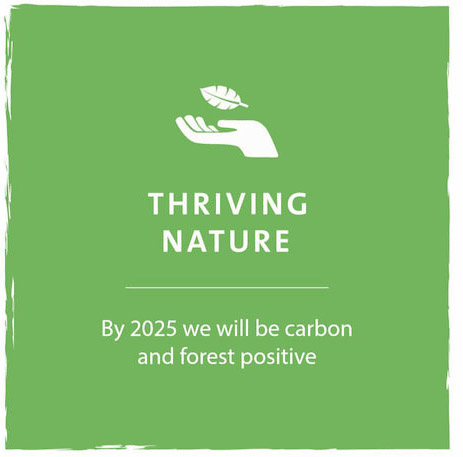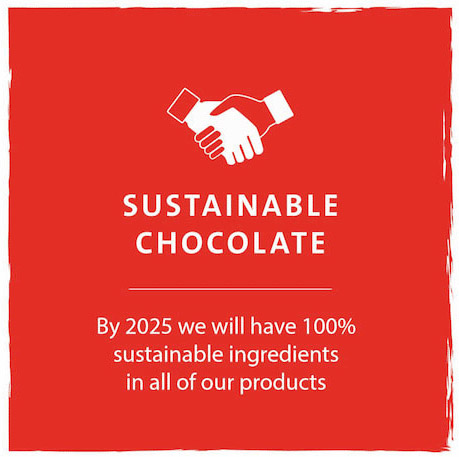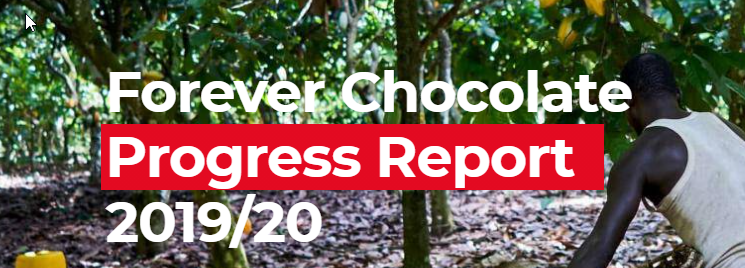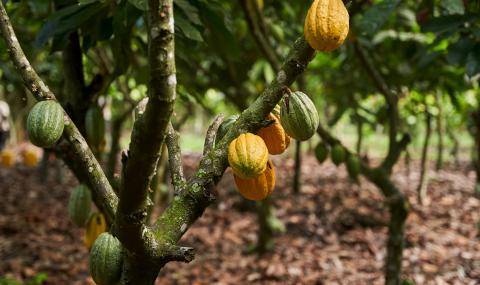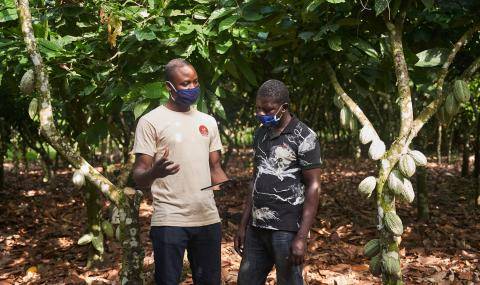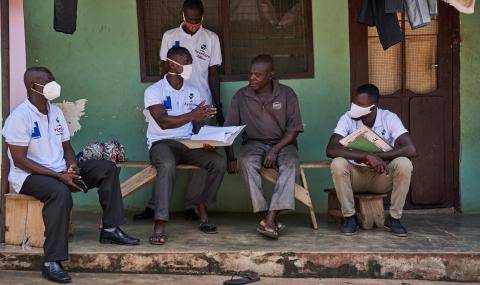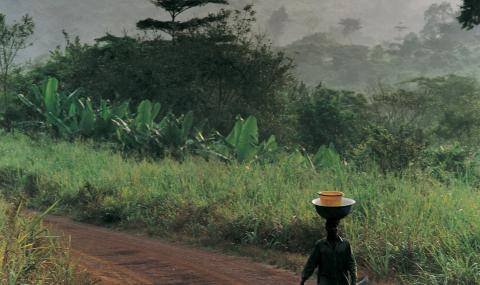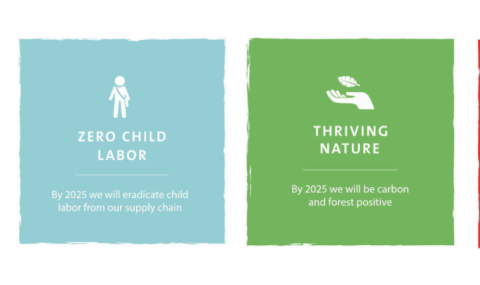Release of Forever Chocolate
Progress Report 2019/20: we reduced our carbon footprint by –8.1%
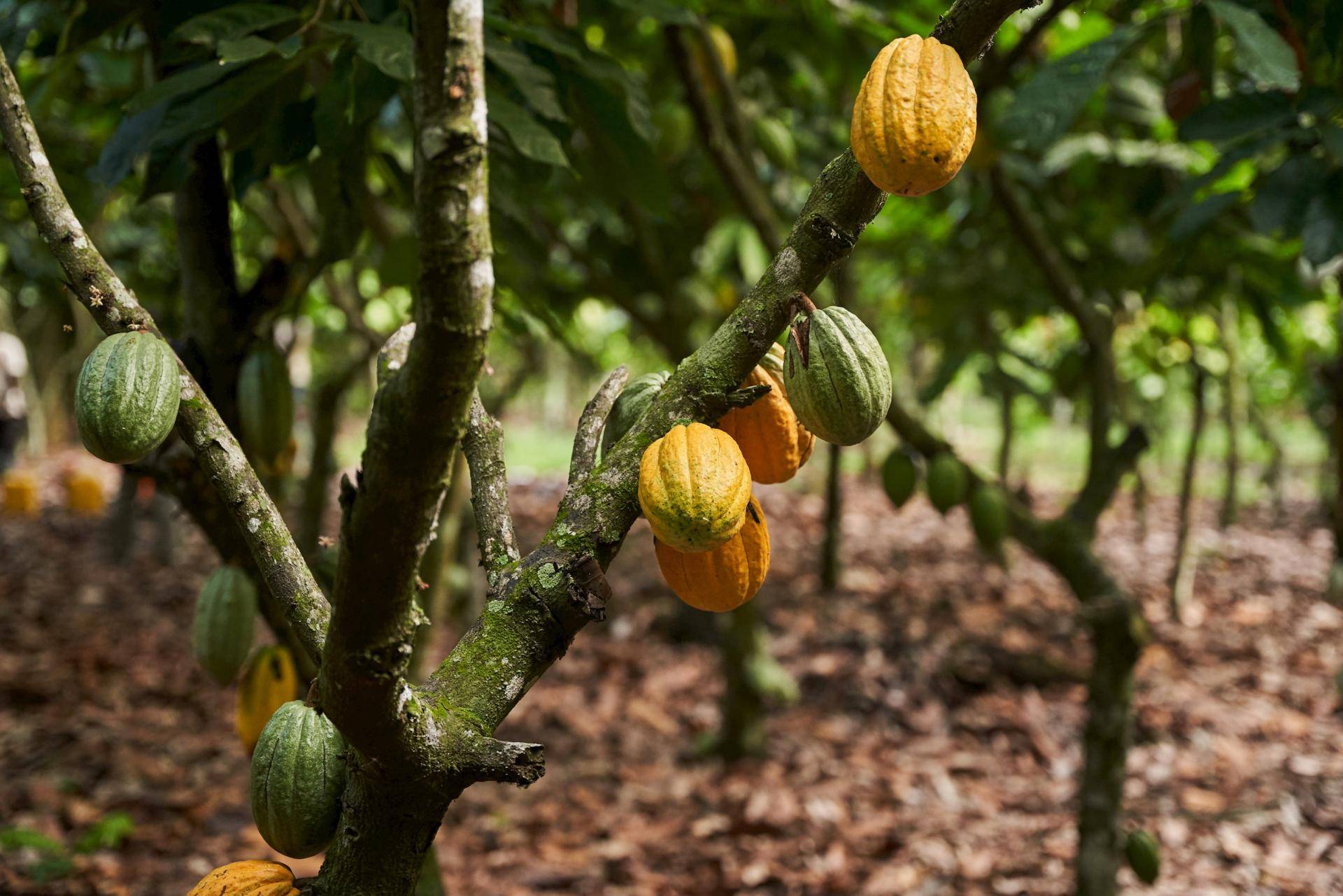
Release of Forever Chocolate
Progress Report 2019/20: we reduced our carbon footprint by –8.1%
These achievements are highlighted in our Forever Chocolate Progress Report 2019/20, which we published today. It is our fourth Report since the launch of Forever Chocolate in 2016, listing our progress towards the goal of making sustainable chocolate the norm by 2025. Our progress data shows we are creating impact in unprecedented times.
- We mapped 181,861 farms on geographic and socio-economic data
- We trained 94,946 cocoa farmers on child labor awareness
- We distributed over 2.0 million cocoa seedlings and over 1.6 million shade trees
- We sourced 61% of our non-cocoa ingredients from sustainable sources
- Our global Gourmet brands, Callebaut, Cacao Barry and Carma have successfully implemented a 100% sustainable cocoa supply chain
If anything, the COVID-19 pandemic is underlining the importance of sustainable supply chains and the relevance of our Forever Chocolate ambition. We believe that challenging years like this one are the time when further scaling impact, developing new partnerships and executing innovative projects is even more critical! We simply did not pause on our sustainability ambition in COVID-19 times.
Forever Chocolate is based on four ambitious targets:
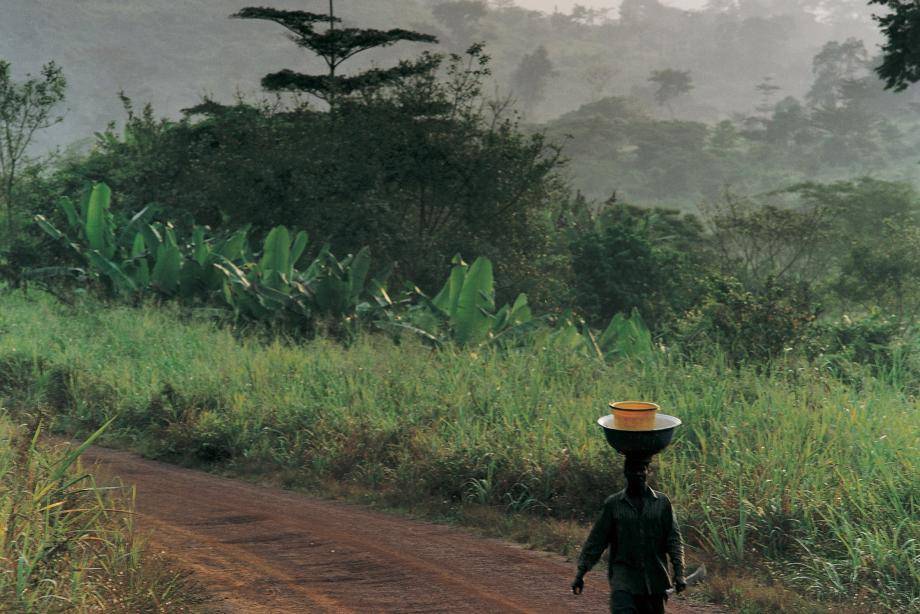
Carbon and Forest positive by 2025
We made great progress on our journey to become carbon positive by 2025, meaning that we will store more carbon than we emit. Our carbon reduction efforts have resulted in a –8.1% reduction of our corporate carbon footprint, from 8.5 million tonnes to 7.8 million tonnes CO2e. The main drivers of this achievement are reduced carbon emissions from land use change, increased sourcing of certified ingredients and reduced carbon intensity in factories. More than a third of our 61 processing plants are now fully powered by renewable energy.
The successful reduction of our carbon footprint is the result of groundbreaking innovation, partnerships and decisive action.
Our carbon intensity decreased from 3.93 to 3.73 tonnes of CO2 per tonne of product, and with the additional contributions from scope 3 insetting projects as assured by the Gold Standard Foundation, was further brought down to 3.65 tonnes CO2e per tonne of product. This is a decrease of –6.9 % compared to the previous fiscal year.
To end deforestation, and to become forest positive, we continued to map cocoa farms in our direct supply chain within 25 kilometers of a protected forest area in Côte d’Ivoire, Ghana and Cameroon. This year we mapped 52,558 (+11%) farms in our direct supply chain located within 25 kilometers of a protected forest area.
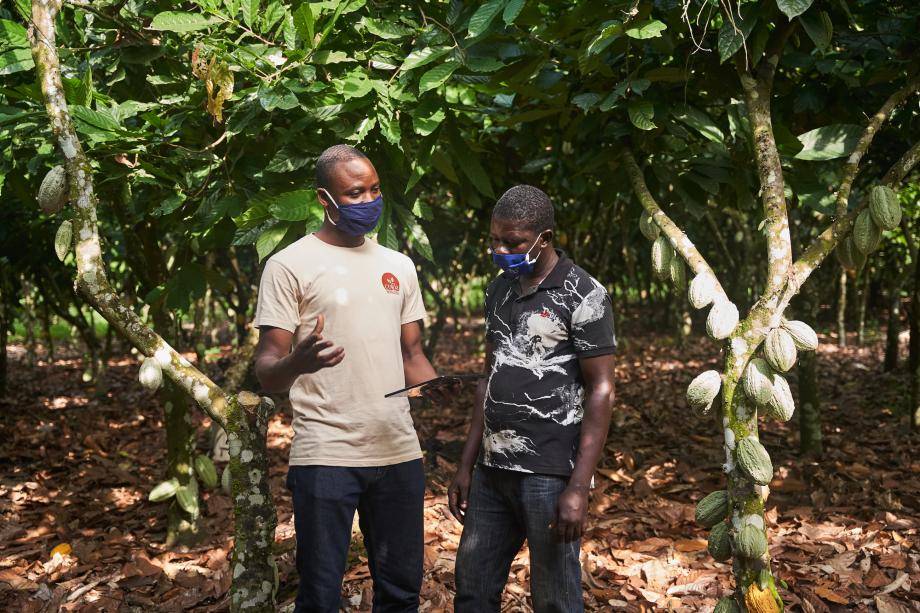
Over 500,000 cocoa farmers out of poverty by 2025
Despite the challenges of COVID-19, we continued the mapping of farmers, in order to gain a better understanding of farmer needs. We have increased the number of farmers with full data to 181,861. We have mapped the geographical location, as well as the size of 277,566 (+14%) active cocoa farms, covering 72% of our direct supply chain in 2019/20. We also increased census interviews with cocoa farmers to 291,377 (+27%), capturing socio-economic and household data.
The mapping allows us to design Farm Business Plans (FBPs), which offer the farmer a journey out of poverty based on their individual situation and farm profile. A FBP consists of tailor-made offerings for a farmer, such as individual coaching, agricultural inputs, tools and diversification. This year over 41,178 (+153%) farmers have adopted FBPs.
Furthermore, we distributed over 2.0 million (+19%) cocoa seedlings and over 1.6 million (+124%) shade trees.
For the measurement of progress against our target to lift over 500,000 cocoa farmers out of poverty by 2025, we are using as a starting point the International Poverty Line definition of extreme poverty of USD 1.90/day. Our activities are directed to place farmers on a trajectory towards a living income, and beyond, through increased productivity and income diversification. In 2019/20 we estimate 143,233 cocoa farmers (+37%) in our supply chain are out of poverty.
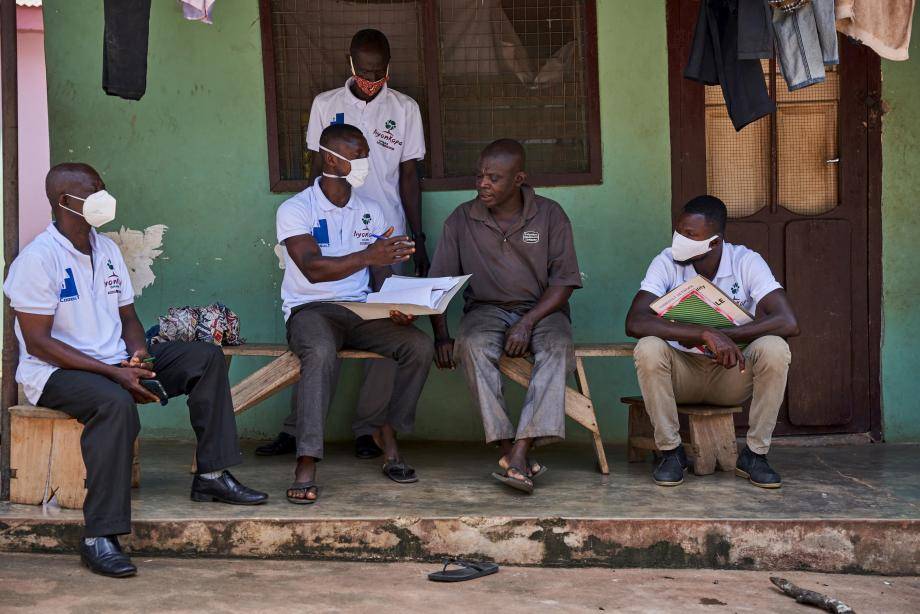
Eradicate child labor from our supply chain by 2025
To help us to identify and address child labor in our cocoa supply chain, we continued in 2019/20 to roll-out child labor monitoring and remediation systems based on the industry practice as developed by the International Cocoa Initiative (ICI). To undertake monitoring and remediation we work on the ground in cocoa origin countries, visiting households and communities to identify children at risk of child labor. Our monitoring and remediation systems now cover 113 farmer groups, including 39,909 (+139%) farmers in Côte d’Ivoire, Ghana, and Cameroon. In 2019/20 we trained 94,946 (+17%) farmers on child labor awareness.
We found in the fiscal year under review 22,965 cases of child labor in our cocoa supply chain. This is a strong increase compared to the previous year, due to the application of a broader definition of what constitutes the worst forms of child labor in Ghana. For all identified cases remediation is being prepared. Of the reported cases we found in previous years, 4,971 cases are under remediation.

100% sustainable ingredients by 2025
In fiscal year 2019/20 we sourced 61% of all our non-cocoa ingredients from sustainable sources, an increase of +13% compared to the previous year. Including our cocoa volume, we sourced 47% of our raw materials from sustainable sources. Going forward, one of our key focal points will be to further build the market pull for sustainably sourced cocoa. Our global gourmet brands are leading by example: Callebaut®, Cacao Barry® and Carma® have successfully implemented a 100% sustainable cocoa supply chain. Our Swiss gourmet brand Carma®, has even managed to go beyond sustainable cocoa, and sources all the ingredients for its chocolate couvertures sustainably.
Our global gourmet brands, Callebaut, Cacao Barry and Carma, are leading the charge on our Group’s target to source all of our ingredients sustainably by 2025. It is an important milestone to further build the market pull for sustainably sourced raw materials.
In order to provide more clarity on how the market for sustainably sourced cocoa is developing, we are for the first time reporting on the percentage of cocoa and chocolate products sold that contain sustainably sourced cocoa. In 2019/20, 37% of the cocoa and chocolate products that we sold contained sustainably sourced cocoa.
This year, the premiums from the purchase of Cocoa Horizons products, our preferred vehicle to enable the implementation of sustainability activities, generated CHF 17.7 million in funds (+20.4%). These funds are invested into activities to drive cocoa farmer professionalization and prosperity, eradicate child labor and deforestation, and become carbon positive.
